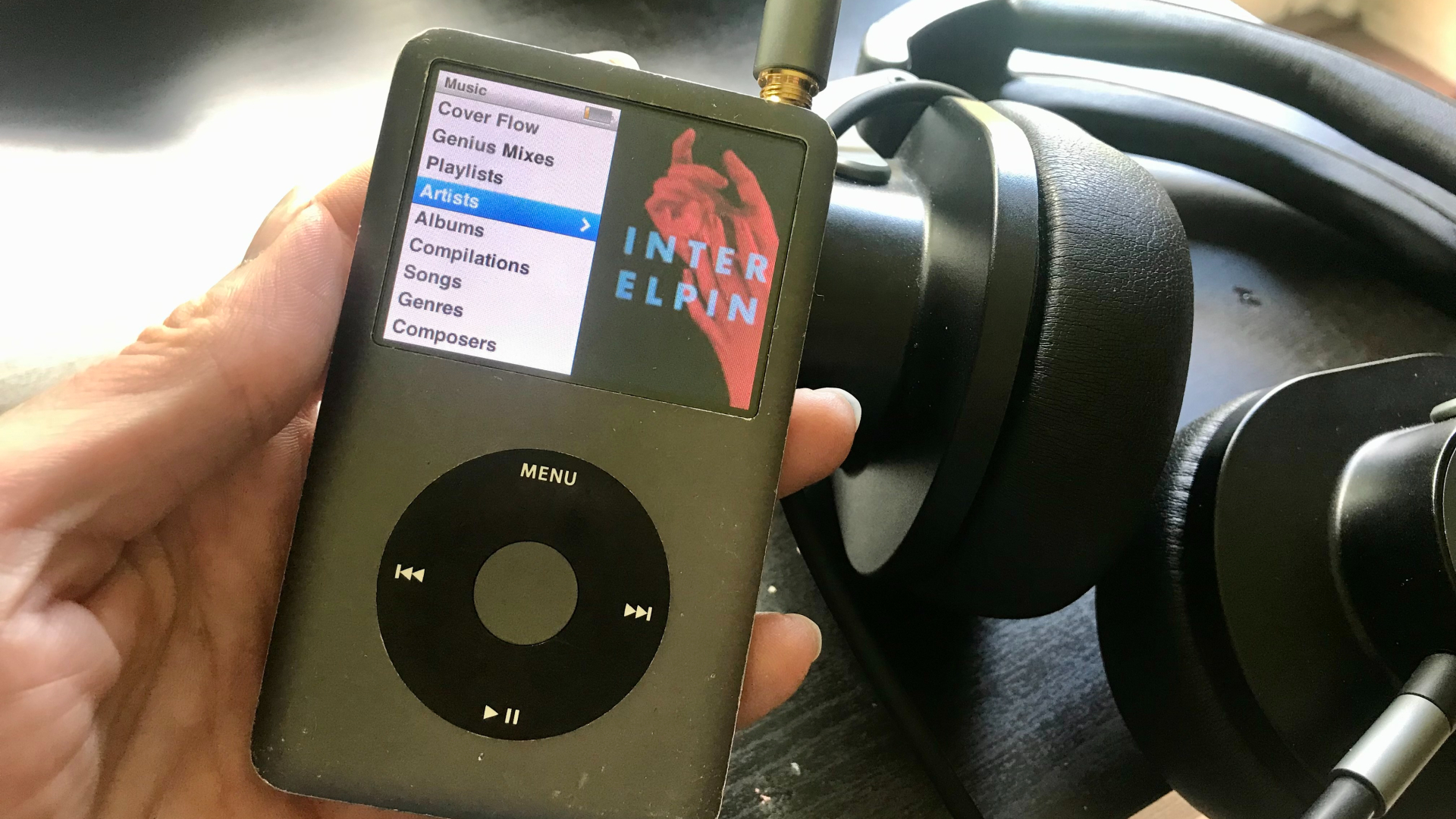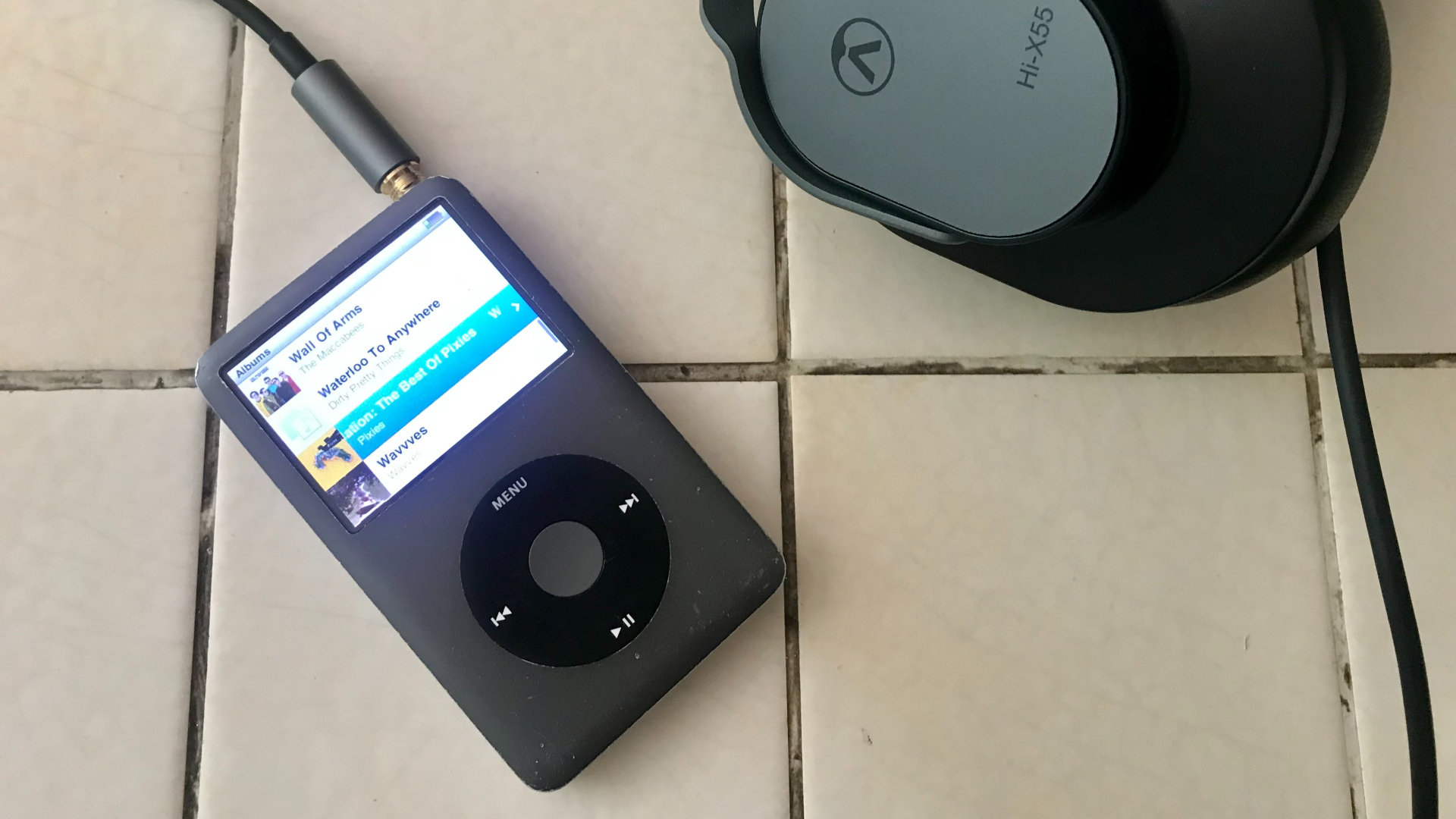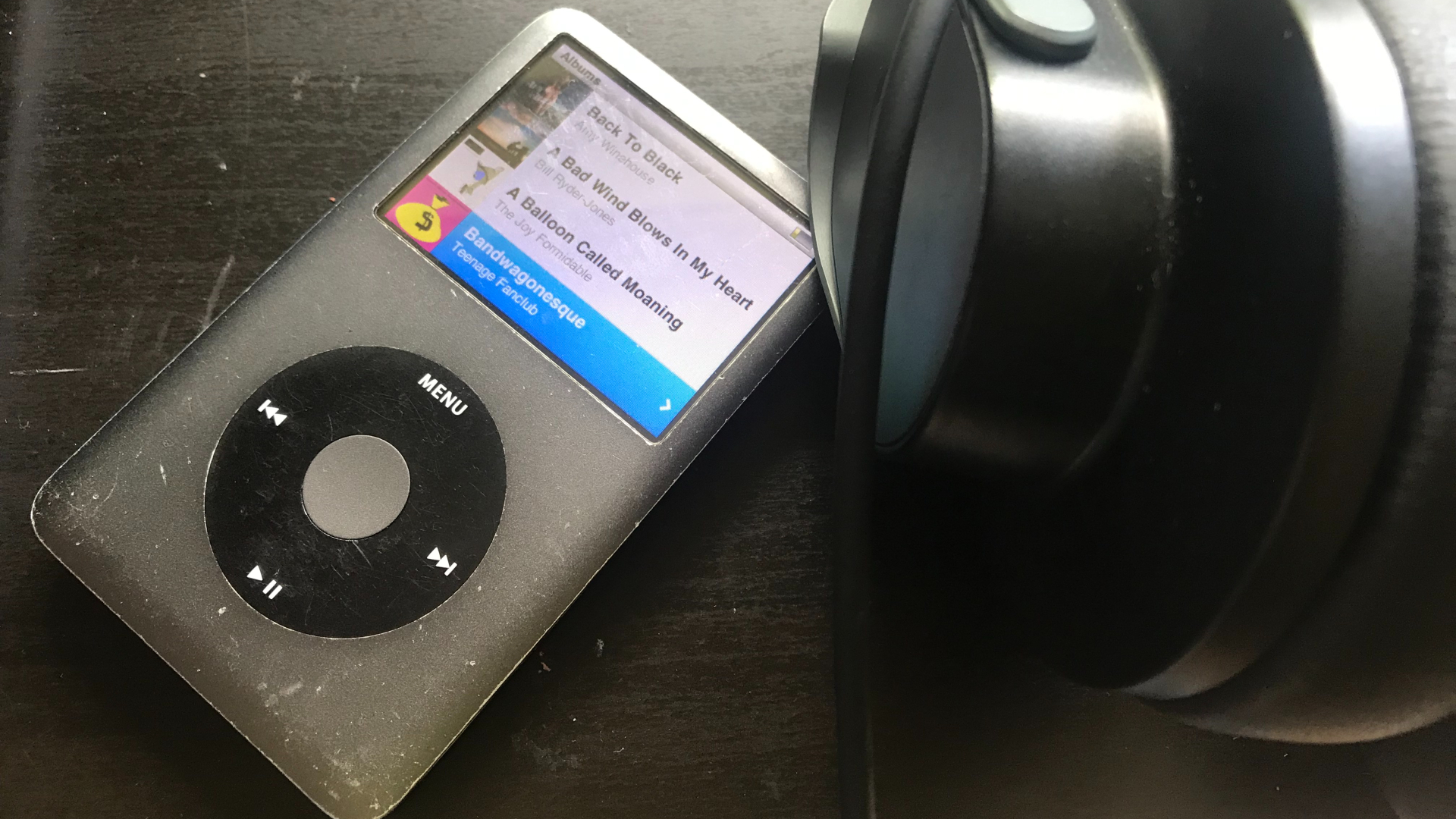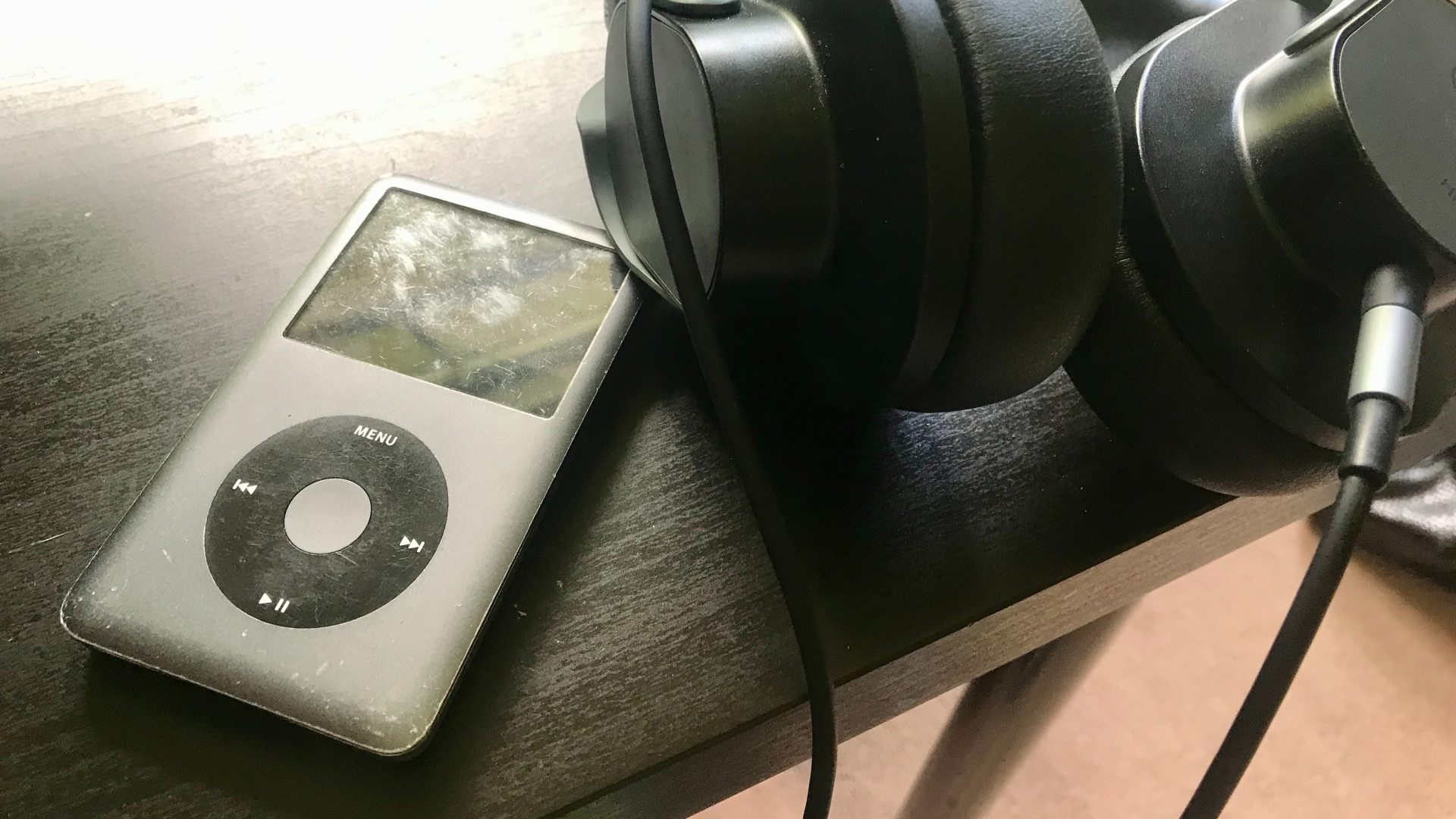Why I'm keeping my iPod Classic even though Apple's killed the iPod for good
An iPod classic is for life – mine still does a job 15 years on

Last week, upon hearing that Apple's last remaining iPod Touch had finally been consigned to oblivion, I looked over at my weather-beaten 160GB iPod classic and actually said to it, out loud, "just you and me then, kid".
It's not hard to see why Apple cancelled the last iPod still in production; the company more or less admitted that it considers its iconic dedicated music player surplus to requirements, since its iPhones (and iPads and even the Apple Watch) now have the whole portable music thing covered.
Well, the Cupertino giant may have called time on a product with a 21-year heritage in standard, nano, shuffle and mini guises, but my 15-year relationship with mine is as strong and enduring as ever, thank you very much.

The iPod you can see in the above photo has been around the world, to countless auditions, job interviews, castings, rehearsals and gigs. It was there when the in-flight movie didn't work, when Apple CarPlay didn't come with the hire car as promised, when German lyrics needed to be learned overnight, when everyone's phone died on the last train home, and when it finally dawned on me that streaming in Hi-Res Lossless on Apple Music really does gobble up mobile data.
In 2007, I saved for the bigger storage option just because 40,000 songs seemed a mind-blowing figure; it still does today – I've never managed to come close to filling it. Steve Jobs came good on his goal to deliver "1,000 songs in your pocket" by 2001, but look at the scale of progress in those six short years!
So why end the musical marriage now, 15 years on? After all, the file formats supported by this iPod (AAC, AIFF, ALAC and my dear old friend MP3, aka Lossy but Little) are still so very relevant.
The same can hardly be said of my once-beloved Sony MiniDisc player – and although CDs remain a viable, tangible music format, come on... I gave up trying to balance a Sony Discman in my bag, wedged in by water bottles in a futile attempt to avoid the cursed skips, many moons ago.

That iPod you see above is still going strong: dented, scratched, overused, but still singing. Once, close to tears, I begged a man in a phone shop on the Reeperbahn in Hamburg, Germany to sort out the broken headphone jack.
"Es ist kaputt und ich kann die Musik niemals ersetzen!" I wailed, even though I had prepared the phrase earlier ('It's broken and I can never replace this music'). He shrugged. I returned the next day to find it fixed for the equivalent of $60, and Kurt Cobain could join me as I strolled in to work once more.
There's no Bluetooth involved here of course, so forget wireless earbuds, and no streaming over Wi-Fi either, but therein lies the iPod's brilliance. Are we drifting towards nostalgia? No, (although if you're after that, you can relive the iPod glory days with this Spotify and Apple Music web player); the thing with the iPod is that you have to want the music.
You have to plug the thing in physically, choose your sonic poison, and then wait until all those albums slot themselves into your library, lighting up the 2.5-inch QVGA LCD display with their little postage-stamp artwork offerings.
But the true beauty is that once loaded, those files are not going anywhere; glorious albums in a long and colorful alphabetical row ready to be devoured. Nirvana's Nevermind will not be thwarted by guest Wi-Fi networks, Alexa misunderstandings, Spotify Free playlists, ads, Bluetooth dropouts, app updates, an incoming phone call, a Google notification or an important email.
Rarely will your access to music fall foul of battery-life issues either – my iPod classic still comfortably lasts 30-40 hours on a full charge.
iPods and lossy MP3 files: blight or boon to music?

The elephant in the room where the iPod is concerned has long been the thorny issue of resolution. Did Apple kill sound quality with the iPod? While Time Cook's behemoth certainly didn't do the detail within your music collection any favors (as it watched you gleefully load up your players with lossy files) the argument is one of accessibility.
You didn't have to wait hours or sacrifice much storage for that album to arrive. You plugged it into a friend's computer, you supped from various different iTunes libraries, and you even (whisper it) used BitTorrent or other file movers once or twice – call it capricious youth. And not to over-egg the pudding, but you really can take so many of those tracks on road trips.
Remember carrying CD wallets on public transport, which separated your delicate discs using transparent sleeves? I do, those were my work tools. I discarded the cases to ease the load on my back because a CD without a case weighs just 16g – useful to know.
Now, the leading edges of notes aren't as forthcoming, pleasing or impactful in an MP3 file as they are in 16-bit/44.1kHz CD quality, but an iPod classic weighs 140g – roughly equivalent to 8.75 CDs. And with an iPod, you can tote an awful lot more than that…
"Music has always been part of our core at Apple, and bringing it to hundreds of millions of users in the way iPod did impacted more than just the music industry – it also redefined how music is discovered, listened to, and shared," said Greg Joswiak, Apple's SVP of Worldwide Marketing, in the release announcing the iPods demise, adding, "Today, the spirit of iPod lives on."
I agree wholeheartedly with the first bit, Greg, but I have to tell you that my iPod actually lives on in more than just spirit. Yes, even teen spirit.
Get daily insight, inspiration and deals in your inbox
Sign up for breaking news, reviews, opinion, top tech deals, and more.

Becky became Audio Editor at TechRadar in 2024, but joined the team in 2022 as Senior Staff Writer, focusing on all things hi-fi. Before this, she spent three years at What Hi-Fi? testing and reviewing everything from wallet-friendly wireless earbuds to huge high-end sound systems. Prior to gaining her MA in Journalism in 2018, Becky freelanced as an arts critic alongside a 22-year career as a professional dancer and aerialist – any love of dance starts with a love of music. Becky has previously contributed to Stuff, FourFourTwo and The Stage. When not writing, she can still be found throwing shapes in a dance studio, these days with varying degrees of success.